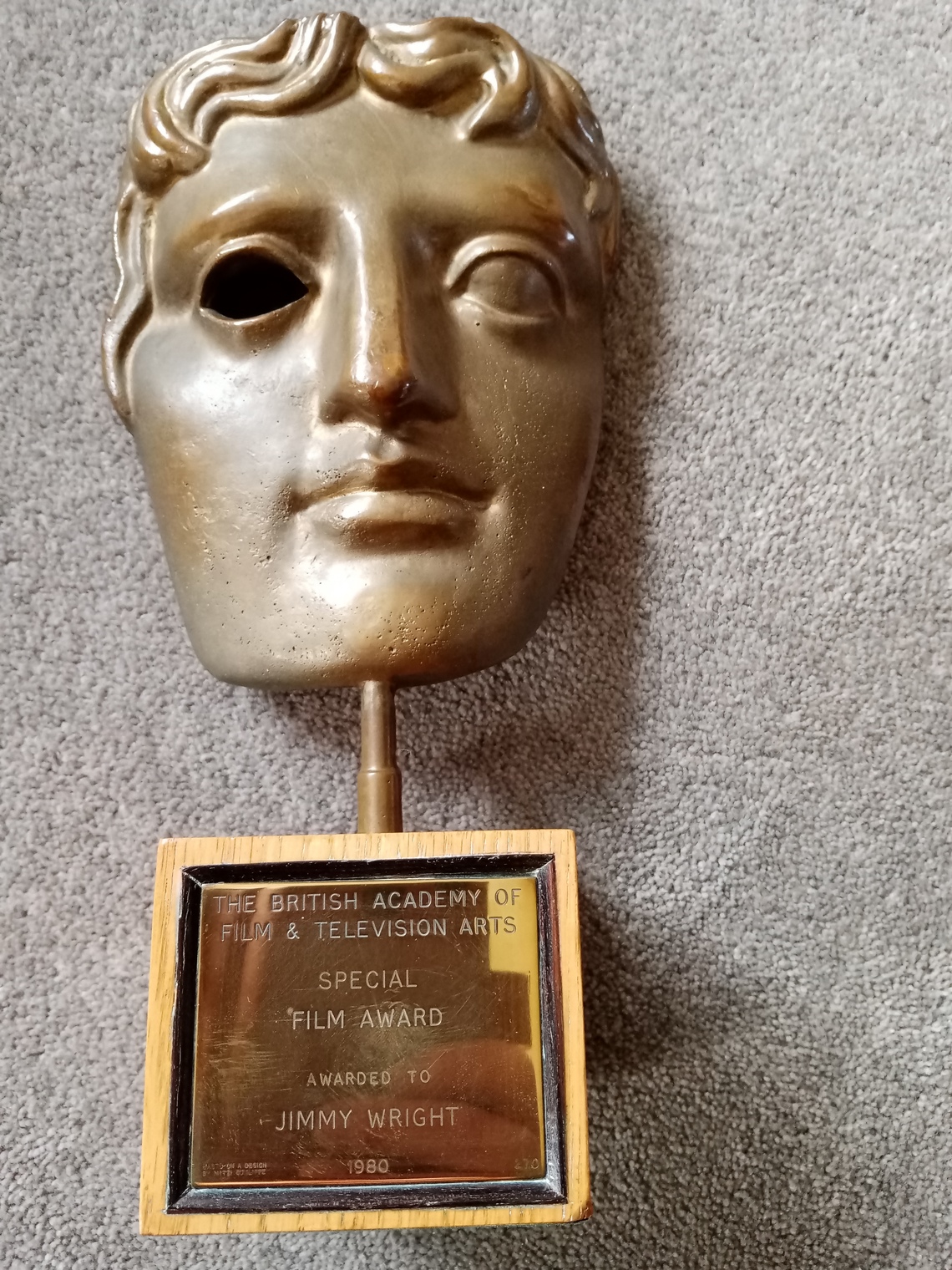From The Archive – Jimmy Wright, Film-Maker: Edited Obituary originally written by Edward Bishop, Journalist, Author and published in The Independent March 1993 https://www.independent.co.uk/news/people/obituary-jimmy-wright-1499215.html
'YOU can't talk to a Guinea-Pig without a pint' were Jimmy Wright's first words to [Edward Bishop] at Shepperton Studios where, in the early 1950s Jimmy launched his first film production company. Jimmy represented the essence of what was to become known as 'guinea-piggery'; when he was a patient of Sir Archibald McIndoe, the pioneering plastic surgeon, as one of his 'Guinea-Pigs' at the Queen Victoria Hospital, East Grinstead (which became known as the Sty) on and off between February 1944 & 1951.
There never was, and never will be, another ward like McIndoe's hutted Ward 111, where a barrel of beer was on tap day and night and the Guinea-Pig Club was founded by McIndoe over a bottle of sherry. But for the club, set up for the lifetime welfare of his patients, to care for its charges until rehabilitation and resettlement, Jimmy and hundreds of other British and Commonwealth wartime aircrew might have been institutionalised.
Commissioned into the RAF as a pilot officer in 1942, he was rejected for pilot training because his eyesight was considered inadequate but was accepted as an RAF Film Unit cameraman. Once 'in' he qualified as an air gunner to enable him to film operationally. He had already had two lucky escapes filming reconnaissance over heavily defended enemy targets for which he was awarded a DFC, before he was burned in a Martin Marauder reconnaissance bomber that crashed on take-off at Taranto, Italy.
Jimmy’s father, James, a former Royal Flying Corps fighter pilot and newsreel war correspondent in WW One, pulled strings and had time to reach the hospital in time to save Jimmy and then accompanied his heavily bandaged son home on a cargo Liberator.
After leaving hospital, in 1952 Jimmy founded Anglo-Scottish Films at Shepperton Studios. He produced documentaries and shorts for the Central Office of Information and companies. In 1961 he launched Film City Productions. He made screen ads for cinema and, as independent television arrived, produced commercials.
Ever mindful of the debt he felt he owed to guinea-piggery and St Dunstan's, where he mastered braille, he worked enthusiastically for the Guinea-Pig Club fellow members and for the club's great benefactor, the RAF Benevolent Fund. He made training videos for the Braille Authority and quite extraordinarily for a blind man approaching 70, he para-scended the Channel from Ramsgate to Dunkirk.

In 1981 he received a Bafta for the series of films that he had made/produced about various disabilities.
Who are in the ‘Guinea Pig’ Club?
The Guinea Pig Club was formed in July 1941 to support aircrew who were undergoing reconstructive plastic surgery after receiving burn injuries in the Second World War. What began with 39 patients grew to 649 by the end of the war and included Canadians, Australians, New Zealanders as well as Americans, French, and Czechs and Poles.

The committee decided on three levels of membership:
1) The Guinea Pigs – men who had been burned in a plane crash and had had plastic surgery at Queen Victoria’s Hospital
2) Honorary Members – scientists, doctors and surgeons who had worked at the burns unit at the Queen Victoria’s Hospital.
3) Friends of the Guinea Pig Club – someone who has contributed to the club either financially or in other ways.
The club was meant to have been disbanded when the war ended but it did not. As the war progressed, the type of patient treated at the burns unit changed from fighter pilots to bomber crews. In the final year of the war, 80% of those treated at the burns unit were from bomber crews. The surviving Guinea Pigs marked the Club's 80th Anniversary in 2021
Per Ardua ad Astra” is the motto of the RAF and means “through adversity to the stars” and nowhere is this more profoundly represented than in the members of The Guinea Pig Club. Amazingly, some of them made such a comprehensive recovery that they returned to flying duty, determined to see out the war as active combatants.
A long overdue memorial to Sir Archibald, his Guinea Pigs and to ‘the town that did not stare’ was erected in a prominent place in East Grinstead in June 2014.
Editor’s Note – My thanks to Jimmy’s widow for meeting me and showing me Jimmy’s Bafta, his Guinea Pig ‘lapel pin’ and some of her significant photographic archive that documented Jimmy’s life and achievements, including some of his extensive burns treatment at the ‘Sty’ at East Grinstead.